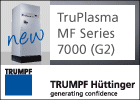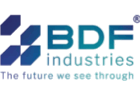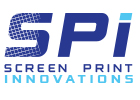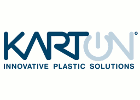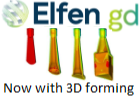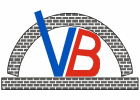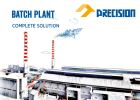Diverse product portfolio contributed to EUR 2.8 billion sales growth
Rising energy and raw material costs pose challenges
Achieved first milestone in reducing carbon emissions by switching to 100% renewable electricity
Further investments of EUR 500 million planned for 2023 fiscal year
Despite the global crises, the international specialty glass manufacturer SCHOTT closed the fiscal year 2021/22 with solid financial results. Sales increased by 10 percent to EUR 2.8 billion resulting in an EBIT of EUR 422 million. “Customers want a reliable partner who can deliver their needs and continue to invest in growth, which is exactly what SCHOTT is doing,” says CEO Dr. Frank Heinricht. Main contributors to the company’s positive results were the pharmaceutical business and components for medical devices and microchip manufacturing. Moreover, SCHOTT sees future opportunities with its ultra-thin glass for the astronomy and space industry. Further investments of EUR 500 million are also planned for the current fiscal year.
SCHOTT maintained financial resilience with a net liquidity of EUR 71 million and an equity ratio of 51%, due to its solid growth and investment strategy. "As a result of the pandemic, strained supply chains and increasing raw material and energy costs pose a major challenge to the industry and our company," says CFO Dr. Jens Schulte. "With efficient measures, we were able to manage the situation; however, we could not avoid facing price increases." During the last fiscal year, SCHOTT was able to expand its international production network by investing EUR 426 million in additional buildings and equipment, including two new state-of-the-art plants; the company opened a new plant for polymer syringes in Müllheim, Germany, and another flat glass plant for household appliances in Bolu, Turkey.
Top performers and new application fields
SCHOTT Pharma was a significant contributor to the success of the technology group. The subsidiary produces prefillable syringes made of glass and polymer, cartridges, vials, and ampoules that are used to safely store and administer medications. During the last fiscal year, SCHOTT established a stand-alone company for its pharma business to take even greater advantage of the dynamic developments in the global pharmaceutical market and allow the group to explore new strategic opportunities.
Other top-performing products were high-quality fiber optic light guides, for example, for robotic surgery. They transfer white light from the light source into the body and help surgeons obtain an optimal view of the human body.
The demand for ZERODUR® glass-ceramic, optical glasses, and fiber optic light guides for the semiconductor industry also increased. In modern lithography machines for computer chip manufacturing, silicon wafers and exposure masks have to be positioned precisely in order to produce the finest structures for the most powerful microchips. SCHOTT products ensure that the highest precision is maintained during the process.
Furthermore, specialty glass offers new perspectives for the exploration of the earth and outer space. SCHOTT supplied the five hundredth of nearly one thousand mirror blanks for the Extremely Large Telescope (ELT) that is currently being built in Chile.
SCHOTT’s products also recently helped achieve a spectacular breakthrough in nuclear fusion. For the first time, the National Ignition Facility (NIF) at Lawrence Livermore National Laboratory (LLNL) in California generated more energy than was consumed in a fusion reaction. The heart of the facility consists of a high-energy laser that is amplified by SCHOTT’s laser glass. Moreover, protective shields and filters made of specialty glass are also used in the process. The company has supplied more than 1000 parts to the NIF.
New employees and successes in climate protection
Behind this success lies a solid international team: Last fiscal year, SCHOTT created 700 new jobs, with approximately 17,200 total employees, of which two-thirds worked outside of Germany. "A company can only grow if it has a qualified workforce. To tackle the current shortage of skilled workers, we are pursuing innovative recruiting methods, offering attractive working conditions, and refining our work-time models," says Dr. Heinricht.
SCHOTT is also demonstrating its corporate responsibility with its "Climate Neutral 2030" program, in which the first milestones have been reached: Since the last fiscal year 2021/2022, the global electricity demand has been covered by renewable energies. The company also continues to drive technological change with projects enabling the electrification of melting furnaces and the use of hydrogen.
Outlook: Expanding production network
The technology group has set a growth target of five to eight percent for the current fiscal year. Even though energy and raw material costs remain an issue, SCHOTT will continue to push ahead with the expansion of its production.
Heinricht: "We have increased our investments again this year to EUR 500 million. With a strengthened production network, we can continue to be a reliable partner for our customers in their search for the perfect solution and supply important specialty glass components and innovations for their products."




